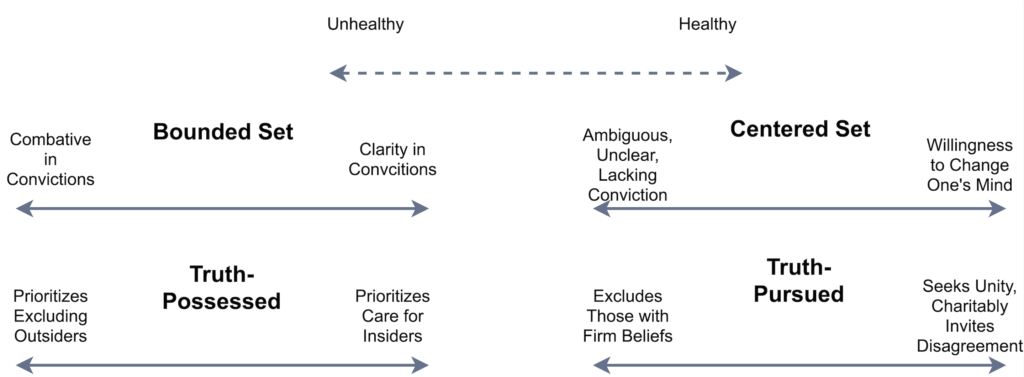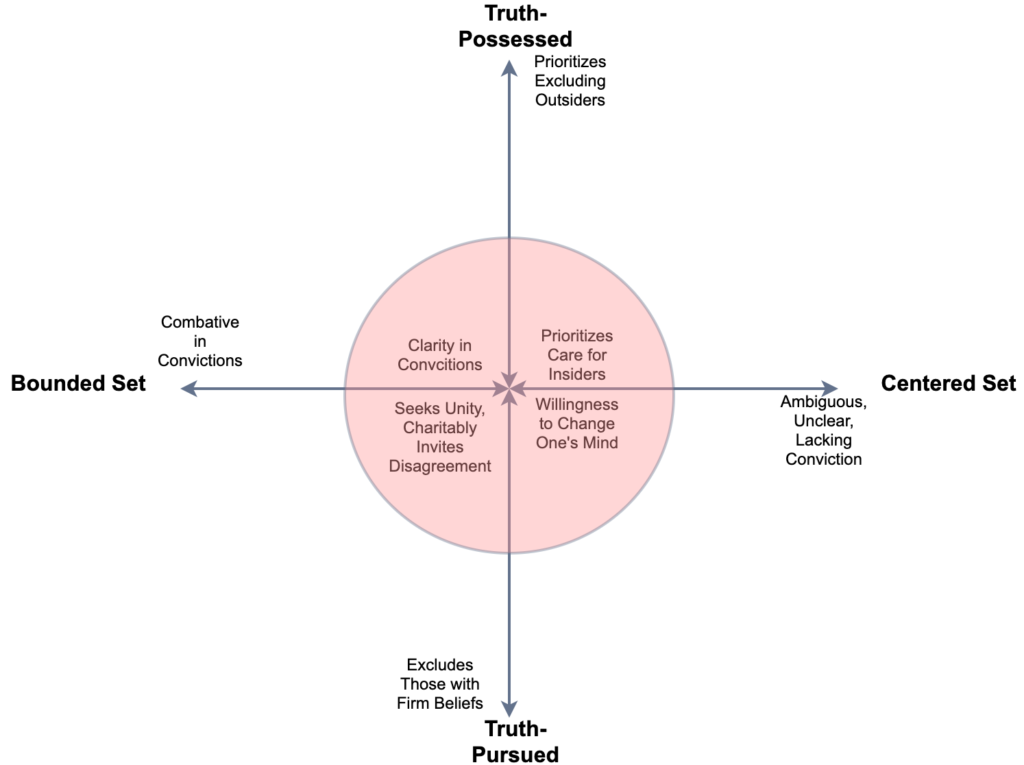The Cage Stage. That is what we in the Reformed tradition humorously label those who have recently committed themselves to Reformed theology. The joke comes from the all-too-common reality that new adherents to Reformed beliefs tend to be combative, arrogant, and rude. The cage stage is the season when we need to be locked up in a cage, so we don’t harm anyone in our combativeness or make a fool out of ourselves! For some, this season only lasts weeks or months. For others, it can last years or an entire lifetime.
Reformed acolytes are not the only converts who can be bold and brash in their beliefs. Such behavior – what we might call a kind of radicalization – is common across all spectrums of beliefs and subjects. As Jonathan Haidt shows in The Righteous Mind, we are all driven primarily by our intuitive elephants. We are easily ensnared by polarizing ideologies, by values which both “blind and bind” us. Haidt writes,
“Morality binds and blinds. This is not just something that happens to people on the other side. We all get sucked into tribal moral communities. We circle around sacred values and then share post hoc arguments about why we are so right, and they are so wrong. We think the other side is blind to truth, reason, science, and common sense, but in fact everyone goes blind when talking about their sacred objects… We are deeply intuitive creatures whose gut feelings drive our strategic reasoning.” (The Righteous Mind, pp. 364-371)
Aggressive, bold followers can be found across all ideologies and belief systems: from democrats to republicans, pro-life to pro-choice, Christian to Muslim, atheist to Jewish, progressive sexual beliefs to historic sexual beliefs, and so on. This radicalization can even progress into violent behaviors, as is often the case in various kinds of terrorism. My purpose here is not to evaluate any of these beliefs at length, but simply to observe that zealous beliefs are common in all places and cultures.
Dr. Soong-Chan Rah, an author and professor at Fuller Theological Seminary, has helpfully given two paradigms for describing the way we hold our most deeply held beliefs. These paradigms can help us explore what it looks like to hold our beliefs with conviction while still being kind and charitable. Sanctified believers are not driven first and foremost by base instinct but the work of the Spirit in them.
The first paradigm is a contrast between bounded or centered set thinking. The second paradigm is a contrast between an attitude of truth-possessed or truth-pursued. In this first post, I will briefly define each of these concepts and demonstrate how each of these ways of inhabiting our beliefs have strengths and weaknesses. In the next post I will apply these concepts for my confessionally Reformed peers to show why our tradition ought to bring about the best from all four categories in these two paradigms.
The Paradigms Explained
For the sake of brevity and the purposes of this article, I will define each of these paradigms within a Christian belief system. However, these four concepts could be defined and used within any robust ideology or belief system.
Bounded or Centered Set Thinking
The contrast between bounded and centered set thinking helps us articulate the degree to which an ideology or belief system places firm boundaries on its members or followers. A bounded set belief system has very strong, clear boundaries for its members. To transgress those boundaries is to forsake one’s beliefs and, therefore, find oneself on the outside of the belief system.
Evangelicalism in the United States has historically been very bounded in its thinking. Following the Bebbington quadrilateral, Evangelicals have explicitly emphasized the authority of Scripture, the centrality of the cross, the importance of conversion, and mission. Others, such as Christian Smith and Michael Emerson, have demonstrated that Evangelicals also tend to hold other cultural beliefs as part of their bounded set. These beliefs would include hyper-individualism, color-blindness, and an emphasis on spiritual matters to the neglect of bodily concern.
To be an Evangelical, one must agree to these boundaries and happily abide by them. Crossing these boundaries in any way places one on the outside of the Evangelical community.
In contrast, a centered set system is less concerned with fixed boundaries of beliefs. Instead, a centered set system is more focused on the direction a person is headed in. Perhaps the old cliché is fitting here: for centered set beliefs, it’s more about the journey than the destination.
A centered set Christian system places an emphasis on Christ and Christlikeness but would not place the same emphasis on fixed beliefs such as the authority of Scripture or other historic Christian beliefs. To some, this might take the form of progressive Christian belief systems. For others, this may simply take the form of minimizing the importance of dogma and doctrine, or emphasizing areas of agreement, for the sake of Christian unity.
Truth-Possessed or Truth-Pursued
Related to the bounded/centered set paradigm is the framework of truth-possessed versus truth-pursued. Those with a truth-possessed mindset believe they own or have exclusive access to the truth. If one operates from a position of being truth-possessed, they not only believe they have the power to articulate the boundaries on the truth, but who has the rights to the truth.
Returning to the example of Evangelicalism, the truth-possessed mindset has often created an Evangelical culture with little room for nuance or difference in belief. Evangelicals, therefore, have historically been quick to go to (culture) war with anyone who disagrees with their theological or cultural convictions. It is not a stretch to say that the soil which has nurtured Evangelicalism has been conflict: with modernism, Darwinism, education, alcohol, people of color, Catholics, Mormons, the LGBTQ+ community, or even the government. This knack for conflict stems from a truth-possessed attitude.
A truth-pursued attitude, like a centered set system, is much more open-ended. Those with a truth-possessed attitude believe that one can never fully arrive at “the truth” and must always be pursued. Within Christian belief systems, the prefix Neo- often demonstrates a “truth-pursued” attitude. Whether it is Neo-Orthodoxy, Neo-Evangelicalism, or Neo-Calvinism, these systems reflect a critical attitude toward their respective traditions and seek to recommunicate their beliefs for modern concerns.
The Strengths and Weaknesses of Each Position
On first read, I would guess most readers find themselves feeling more drawn to both the centered set and truth-pursued descriptions. After all, who wouldn’t want to be more open-minded, cooperative, and amicable? Who really wants to be seen as dogmatic, divisive, or even prejudicial? While I am sympathetic to such concerns, I do not think you should be so quick to dismiss the strengths of the bounded set and truth-possessed frameworks.
In her leadership book Dare to Lead, Brené Brown popularized the concept that being clear is kind, while being unclear is unkind. In the marketplace, she writes, “Not getting clear with a colleague about your expectations because it feels too hard, yet holding them accountable or blaming them for not delivering is unkind.” Or, more colloquially, “Feeding people half-truths or bullshit to make them feel better is unkind” (pg. 48).
Being unclear about our beliefs can bring about similar challenges – or “unkindnesses” – in our churches. While we may want to downplay firm beliefs for the sake of unity, are we not the inviting assumptions among church members which, when they are exposed, can lead to massive conflicts? Unspoken cultural values and prejudices bring about a great deal of harm when they are revealed. Or consider how a minimization of doctrine might lead church members to feel betrayed when they find out their leaders believe something quite different than they do about sexual ethics, social justice, or historic Christian doctrines.
We are being kind to our members, or those who we might like to be our members, if we clearly articulate our bounded beliefs.
Similarly, the humility of a truth-pursued mindset is certainly attractive and may generate new followers and members. However, it is also important that those who are members of a church community know what the boundaries of membership are and what rights members are entitled to. As Charles Vogl writes in The Art of Community, it is important for members to know who shares their values so they have a sense of a safe space to belong (pg. 33). This necessitates to some degree that members adopt a truth-possessed mindset to mark who is firmly inside the community.
I would argue, then, that each of these four attitudes should possess their own spectrum with a range of healthy and unhealthy behaviors. These spectrums could look something like the following:

Plotting each of these spectrums together could look something like this:

When we put these paradigms together, we get a picture of what Christians look like when they hold their convictions with charity and kindness. A healthy posture of belief holds clear convictions about orthodox doctrine (John 17:17, Acts 2:42, 1 Corinthians 15:2) while acknowledging that our perspective is limited and fallen (1 Corinthians 13:12) and needs to be constantly informed by the knowledge and perspective of others (Proverbs 27:17, Ephesians 4:15). Healthy Christian communities prioritize care for insiders (Galatians 6:10), never to exclude outsiders (Colossians 4:5-6), but to demonstrate and live into the love of Christ to the world (John 17:23). Kind, Christlike disciples emphasize agreement and unity wherever possible (Mark 9:38-41, Philippians 1:15-18).
To some degree, then, a healthy disciple lives in between a bounded and centered set of beliefs, between a truth-possessed and truth-pursued attitude. Such a posture would both radically upend harsh, divisive, combative expressions of Christianity as well as present a real challenge to more progressive expressions which equate doctrinal ambiguity with unity and kindness.
In the next article I will apply these concepts to the Reformed and Presbyterian tradition and demonstrate how confessionally Reformed believers have great reasons to hold their convictions with kindness and charitability. That so many of us believe and act otherwise is not a fault in our tradition, but demonstrates how little we have actually taken our tradition to heart.

1 comment
[…] In the previous post I endeavored to put forth a useful framework to describe how a healthy Christian disciple holds their beliefs. This framework was the result of bringing together two paradigms which initially contrasted opposing ideas. […]